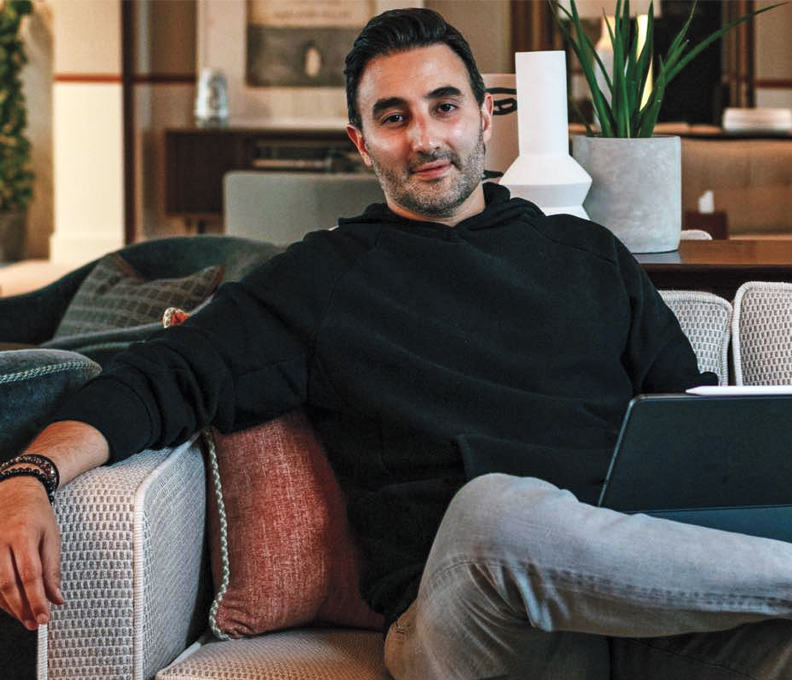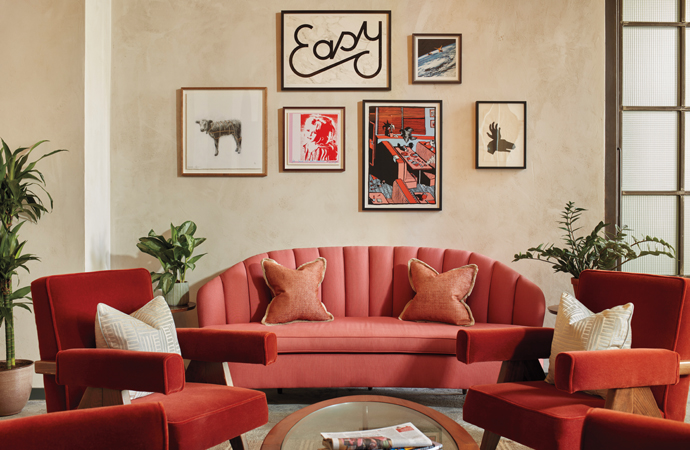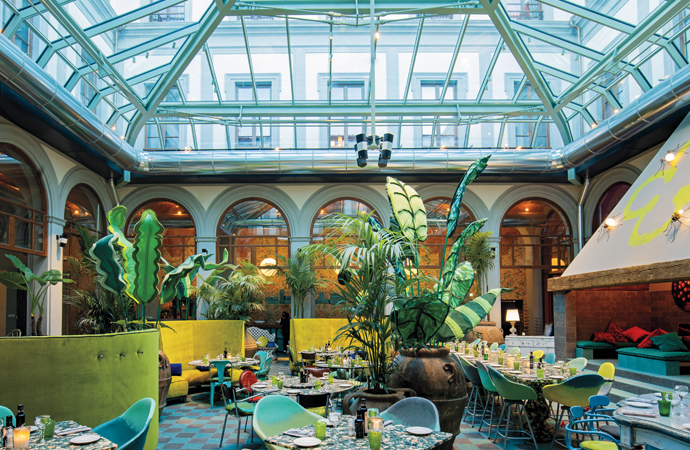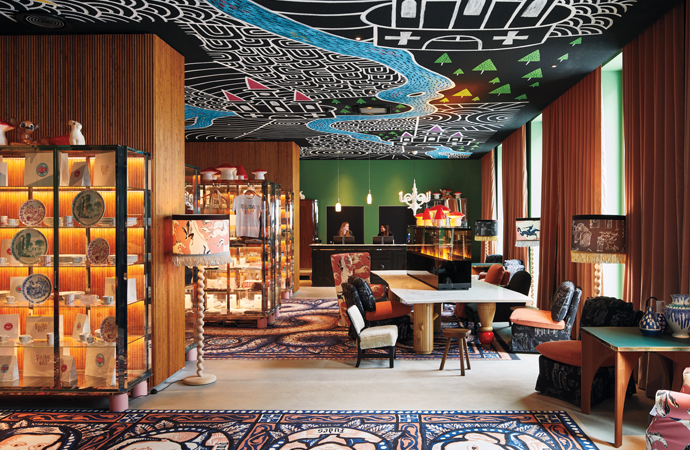Ennismore CEO Sharan Pasricha: “The Hotel Business Is a Canvas”
With a hotel collection that includes The Hoxton, 21c, Mama Shelter and Mondrian, hospitality group Ennismore is growing a diverse portfolio
by Boyd Farrow
May 24, 2023

Ennismore CEO Sharan Pasricha / Photo: Courtesy of Ennismore
Some may think it odd that the CEO of the world’s most dynamic collection of hotel brands—14 in all, encompassing 100-plus properties with 140 more in the pipeline—says he is not a big hotel guy. But, like Ennismore, the “creative hospitality company” he founded in 2011, Sharan Pasricha is greater than the sum of his parts.
“I’m more of a product person,” says the 42-year-old entrepreneur, who moved to the U.K. from India at age 15. “The hotel business is a canvas to express my interest in design, architecture, culture, food and so many other things. Essentially, hotels enable me to create experiences and develop lifestyle brands.”
The first was The Hoxton, a six-year-old hotel in then up-and-coming Shoreditch in East London, which Pasricha bought in 2012 and turned into a buzzy neighborhood hangout. The exposed-brickwork-and-velvet-cushions aesthetic has been replicated in creative districts in Amsterdam, Paris, Brooklyn, Portland, Chicago, Los Angeles, Barcelona and Rome. A Berlin outpost opens this month.

Mama Shelter, Luxembourg / Photo: Courtesy of Ennismore
Yet The Hoxton accounts for only around a tenth of Ennismore’s empire. The group’s eclectic global portfolio now includes the youthful 25hours collection, with 15 properties enlivening Europe’s party capitals; contemporary-art-skewed 21c Museum Hotels, based in Louisville; the Paris-born punk-chic Mama Shelter brand; the glossy Mondrian and blingy SLS chains; the modish Miami Beach haven Delano, which planted a flag in Paris last month; and the “hybrid hostel” Jo&Joe.
Should The New York Times ever need a new word puzzle, it could do worse than ask readers to match these hotel brands with their defining “pillars,” which—rigorously overseen by brand and culture chief Martina Luger, previously at Nike—steer guests to the most appropriate environment. Casual mid-market chain Tribe is designated “Easy & Essential,” for example. At the “laid-back and plush” yet slightly louche Hyde, guests are promised: “Anything can happen.”

25hours, Florence, Italy / Photo: Courtesy of Ennismore
“Our approach is different from others in hospitality,” says Pasricha. “A brand only works if it has a purpose—otherwise it is just another product. We spend a lot of time thinking about how brands connect with people. It is not just price point. It’s the narrative of the hotel and how it fits into its location.” Salami-slicing different types of travelers, he points out, has led to healthy repeat business across properties, not to mention online retail platforms for Mama Shelter and SLS branded goods plus toiletries and workout gear from partners.
Although every Ennismore brand has its own designated marketing lexicon, all share a fundamental tenet: Each property has roots in its community, and often helps accelerate a neighborhood’s regeneration. Unusually for the hospitality industry, up to half the hotels’ revenues come from their restaurants and bars, boosted by the lattes and snacks consumed by locals coworking on lobby sofas.
Uniquely, Ennismore operates four in-house specialist studios, which Pasricha says connect with “every guest touchpoint, starting with our online booking sites.” These comprise an interior and graphic design hub; a digital product and tech innovation lab; a collaborations division; and Carte Blanched, a fully integrated food and beverage concept platform.
“We can apply insights from these operations to all our designs and innovations,” explains Pasricha. For restaurants and bars, for instance, having a concept team working alongside local and global partners gives the brands their “magic dust.”

Mama Shelter, Luxembourg / Photo: Courtesy of Ennismore
“If we were only targeting members or hotel guests, the generic approach may work. However, to target locals we need to be able to compete with the best restaurants in town,” he says. “We look at the market and select an experience that fits best. It could be a concept we have already created and tweaked to fit the local scene, or we might create something new.”
Building even more brands from scratch is also firmly on Ennismore’s agenda. In 2021 the group entered into a joint venture with French hospitality giant Accor to create a new autonomous company. This entity—majority-owned by Accor but retaining the Ennismore name—is keen to consolidate its global presence in the booming upscale lifestyle hotel sector, while also becoming a bigger player in the rapidly growing coworking arena.
The Hoxton has launched a Working From_ membership brand to tap into this market, and work or club spaces spun off from other hotel brands, including SLS, are in the works. Residences are increasingly being added to some of these hybrid hospitality projects.
“We are an asset-light business,” says Pasricha. “Typically, we get approached by companies who would like one of our brands in their building. If we think it is the right city for that brand, and it is the right building, and several other stars align, we would underwrite the project and develop it with our team. It’s not a perfect science. It helps to be one of the largest players in the fastest-growing sector, but even then you’re only as good as your last opening.”
Ennismore has been successful, he says, because the group continues to disrupt the hospitality sector, constantly challenging conventional wisdom. “The biggest lesson I’ve learned is not to take no for an answer. In every sector of every industry people tell you, ‘This hasn’t been done before.’ That is exactly the reason why you should try to do it.”



